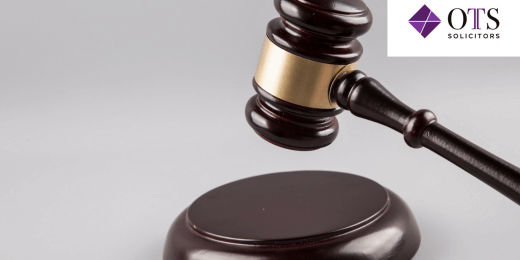A Guide To Prohibited Steps Orders

A Prohibited Steps Order is issued by the court in family cases to prevents either parent from carrying out certain acts or making decisions in relation to their children without the express permission of the court.
Made under section 8 of the Children Act 1989, a Prohibited Steps Order is often used in cases where one parent fears the other is planning to take their child out of the country without their permission and not return them.
An experienced family law solicitor in London can provide you with the best legal advice if you believe an embargo is required to restrict the exercise of parental responsibility relating to your child.
When can a Prohibited Steps Order be used?
A person does not need to have parental responsibility to have a Prohibited Steps Order put in place against them. For example, a Prohibited Steps Order can be issued to restrain a former cohabitant from contacting or seeking to have contact with your child.
As well as preventing a person from taking a child abroad without your permission, a Prohibited Steps Order can also restrict someone being able to apply for a passport on behalf of a child, making decisions about their schooling or medical care, or changing their last name.
How is a Prohibited Steps Order made?
When considering a Prohibited Steps Order, the welfare of the child is the court’s paramount consideration. The court must be satisfied that is in the child’s best interests to have the order made.
In addition, the parent applying for an order must rebut the presumption that the involvement of both parents in a child’s life is positive for their welfare.
An application for a Prohibited Steps Order can be made in person at the Family Court or through a family solicitor. The latter will be able to provide you with the best advice and representation and ensure the procedure is followed correctly.
The correct process must be followed when applying for a Prohibited Steps Order, and it is essential that the order is clearly worded. In Re A and B (Prohibited steps order at dispute resolution appointment), a Prohibited Steps Order was made preventing the father, a candidate for UKIP, from involving the children in political activities. On appeal, the court found there was no written or oral evidence before the court that related to the issues before it, and the father did not have an opportunity to answer the mother's contentions. The wording of the order was ambiguous in respect of its scope and duration. Allowing the appeal, the court found that the district judge's decision to grant the order was procedurally irregular and could not stand. It stressed the need for the terms of a Prohibited Steps Orders to be clear and justified to be enforceable.
A Prohibited Steps Order will not be made if another type of order will have the same effect. For example, if one parent wishes to restrict the amount of contact the other parent has with their child; this can be achieved through a Child Arrangement Order setting out resident and contact arrangements. Therefore, a Prohibited Steps Order is unlikely to be used.
What is the court process?
After a Prohibited Steps Order application is made, the court will appoint a Children and Family Court Advisory and Support Services Officer (CAFCASS Officer). This officer will then try to meet with the parties to see if an agreement can be reached without having to go through a full hearing at Court.
When deciding whether to make a Prohibited Steps Order, the court will need to examine the reasons why the order is being applied for. For example, if one parent wishes to relocate to another part of the country with the child, the court will need to look at why they wish to move. Do they have viable reasons for relocating, such as a lucrative job offer or family support, or do they simply wish to deny the other parent contact with their child?
Can a Prohibited Steps Order be made without notifying the other parent?
An application for a Prohibited Steps Order can be made without notice. However, these will only be granted in exceptional circumstances. Therefore, it is imperative you contact a family law solicitor in London to obtain the best advice.
The Family Procedure Rules 2010, Practice Direction 18A, paragraph 5.1, sets out the six circumstances where an application may be made ex parte:
- where there is exceptional urgency
- where the overriding objective of the applicant is best furthered by doing so
- by consent of all parties
- with the permission of the court
- where a date for a hearing has been fixed - a party who wishes to make an application at that hearing but does not have sufficient time to file an application notice should as soon as possible inform the court (if possible in writing) and, if possible, the other parties of the nature of the application and the reason for it. That party should then make the application orally at the hearing.
- where a court order, rule or practice direction permits
Final words
A Prohibited Steps Order is a serious step for any parent to take. By instructing an experienced family law solicitor, you can be assured of receiving the best legal advice available and in turn, will be more likely to have your application approved.
OTS Solicitors is a respected Immigration and family law firm in London and is highly recommended by the Legal 500. By making an appointment with one of our Family Solicitors, you can be assured of receiving some of the best legal advice available in the UK today. Please contact us on 0203 959 9123.


